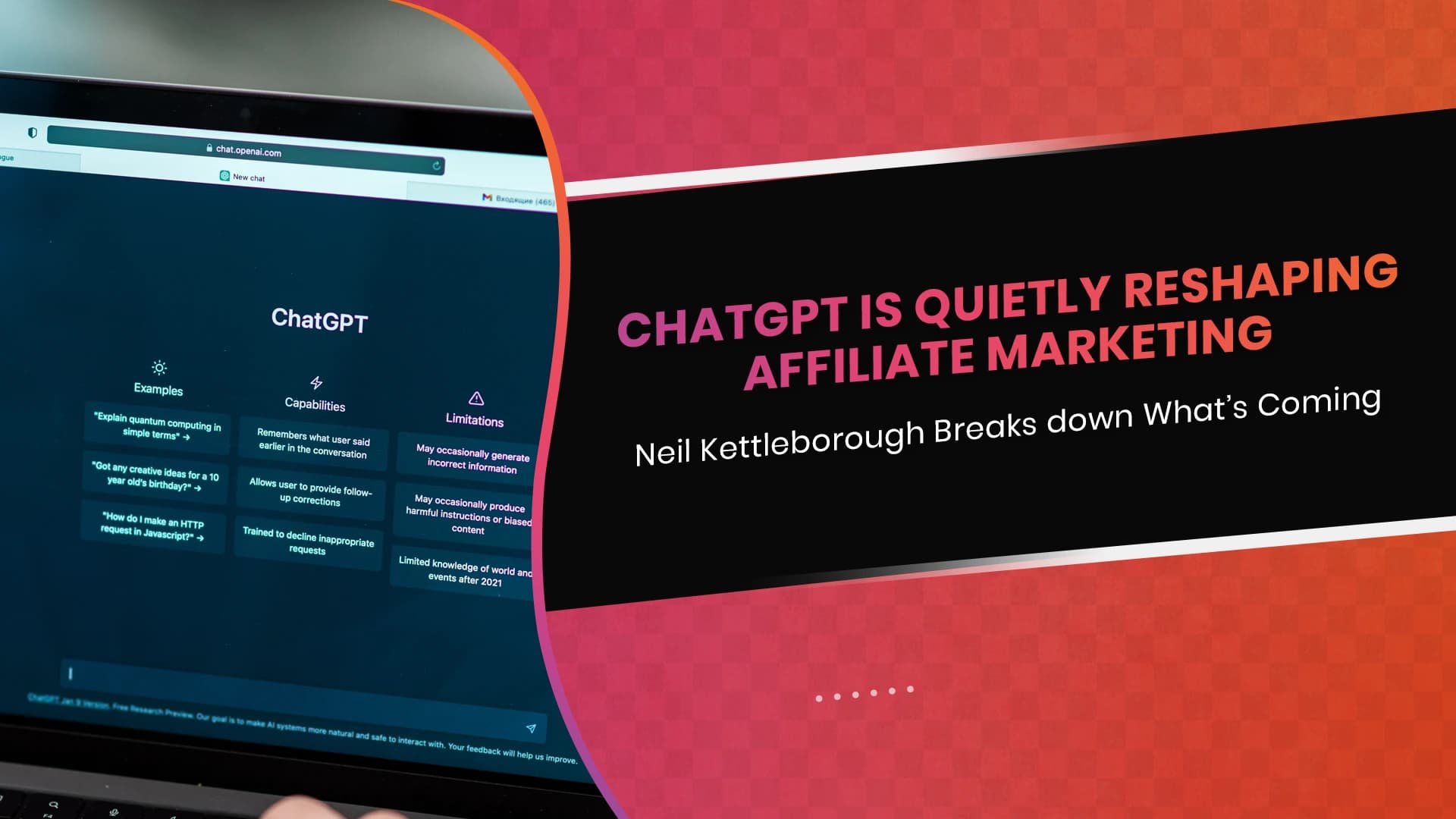Neil Kettleborough, a board member at Trader AI, stated that we are at a tipping point in affiliate marketing, and ChatGPT could be that tipping point.
It is being speculated that OpenAI has a collaboration with Shopify, allowing users to buy products directly within ChatGPT. This means zero display ads, zero sponsored ads, and no detours from Google. A direct approach to shopping within a conversation in ChatGPT.
Instead of selling ad space, OpenAI will earn a commission on the sale, thus changing the revenue model for an AI interaction from ads to commissions.
Neil Kettleborough used an example to illustrate this point. Recently, he wanted to buy a Polaroid camera for his kids. Because he was uncertain in his options, he started to gather research on ChatGPT for the Polaroids.
The AI helped him narrow down the models, compare advantages and disadvantages, and understand price discrepancies, but when he was ready to purchase, there wasn't a way to purchase a Polaroid camera through ChatGPT. Rather, he copied the Polaroid product name and went directly to a Google search.
That additional step - the interruption in the buying journey - is what ChatGPT is currently trying to remove. Soon, as Neil Kettleborough put it, you'll be able to go from question to checkout without ever leaving the chat.
From a customer experience perspective, this will be very smooth. No banner advertising, no affiliate browser blogs, no jumping between sites. Just a seamless journey from discovery to transaction - with the assistance of AI, no less.
But for brands and marketers, the implications could be very disruptive.
What's the main issue? How will product recommendations be chosen?
Will Shopify stores be preferred by default? Will the algorithm favour brands with better data integration or structured feeds with full product data? OpenAI may assert neutrality, but algorithmic stances — particularly those backed by AI — are usually not transparent.
And there's the issue of consistency and confidence. Will users always see the same recommendations, or will they change with each interaction? Will the results favour the best quality product or simply the most optimized listing? Without transparency into the ranking/suggesting process, brands might feel they're rolling the dice on the visibility and losing.
Another variable is advertising. While most commercial businesses derive revenue through payment channel conversions, OpenAI's stated position on sponsors does not have any advertising element; this could provide a reasonable grey area.
Will we see sponsored placements at some future point? If so, where?
Sam Altman, the CEO of OpenAI, clearly prefers payment channel (i.e., commission-based) monetisation relative to traditional advertising.
However, according to Neil Kettleborough, Altman is the same person who took OpenAI from not-for-profit to a for-profit entity. Monetisation strategies change, and advertising, however unloved, eventually returns. From a more industry-wide perspective, Neil Kettleborough raises an important question: why didn't Google do this first?
That's the crux of the challenge. The way affiliate ecosystems have operated until now is through the traditional stage of a search. Take, for example, the search that the typical buying journey begins with, like "best Polaroid cameras," a click to a blog or review product page, then take a commission from that website, not Google.
Google was for discovering, but not where the transaction took place.
ChatGPT, which has large language models (LLMs), is redefining that consumer journey. ChatGPT not only facilitates your decision to buy — maybe the new Polaroid camera — but importantly, it helps you buy, right there. There is no website to visit, no affiliate link to click, and therefore, no commissions for the original content writer, who influenced your decision.
“That,” concludes Neil Kettleborough, “is the real bombshell. Publishers lose out. Google gets leapfrogged. And AI takes ownership of the entire purchase funnel.”
